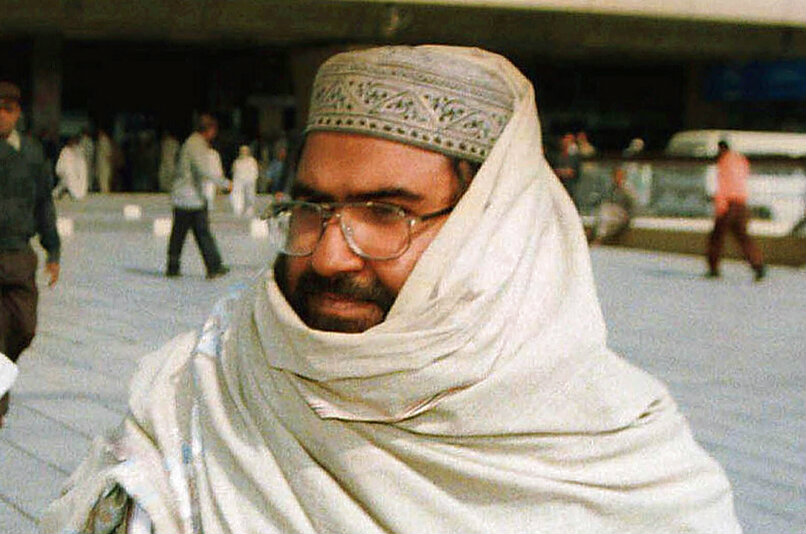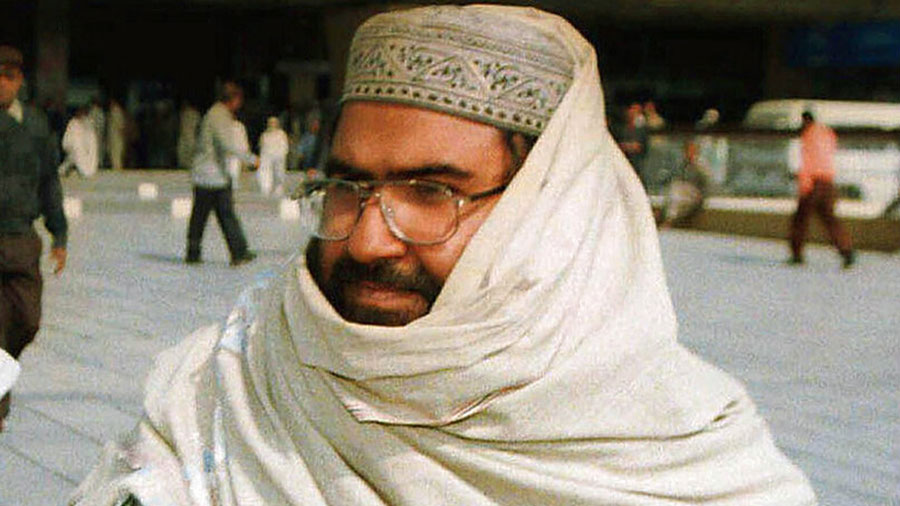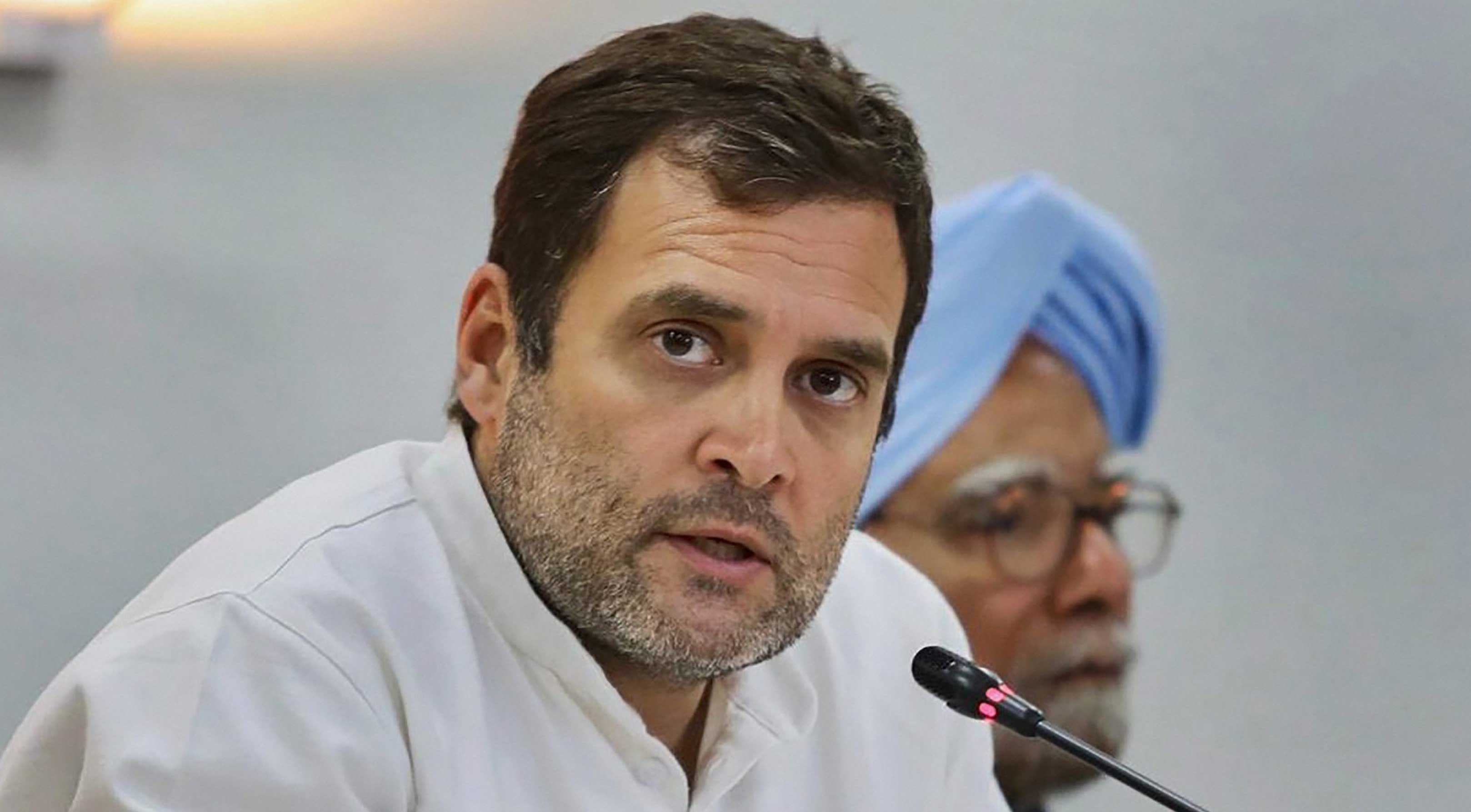Prime Minister Narendra Modi came under fire a day after China put on ice a UN move to designate Jaish-e-Mohammed founder Masood Azhar as a terrorist, the sharpest attack predictably coming from the Congress president.
Rahul Gandhi flagged Modi’s silence on Wednesday’s development to allege that the Prime Minister does not stand up to Beijing.
“Weak Modi is scared of Xi. Not a word comes out of his mouth when China acts against India. NoMo’s China Diplomacy: 1. Swing with Xi in Gujarat 2. Hug Xi in Delhi 3. Bow to Xi in China,’’ he tweeted on Thursday.
Rahul’s party also took on the BJP for “spreading the canard’’ that India would not have faced the current situation had Jawaharlal Nehru in the 1950s accepted a US offer for a permanent seat in the United Nations Security Council (UNSC) for India.
“A little bit of knowledge is a dangerous thing,’’ Congress media-in-charge Randeep Surjewala said.
“The fact is that the UNSC was formed in 1945, and no new country has got in after that. India got independence in 1947. No new member has been added to UNSC between 1945 and now.’’
He countered the specific charge with a reply given by Nehru himself on the subject in Parliament.
“On the question of being a member of the UNSC, there has been no offer -– formal or informal. Some vague references have appeared in the press about it, which have no foundation. The composition of the SC is prescribed by the UN Charter, according to which certain specified nations have permanent seats,” Nehru had said.
“No change or addition can be made to this without an amendment of the charter. There is therefore no question of a seat being offered and India declining it. Our declared policy is to support the admission of all nations qualified for UN membership.’’
The controversy arose primarily because when the UNSC was constituted in 1945, it was the Republic of China that was a member as it governed all of China. However, when the Republic of China (now Taiwan) was expelled from the mainland by the communist party, a dispute arose in the comity of nations on who represented China.
The matter was settled in 1971 when the People’s Republic of China was recognised through a UN resolution to be the rightful representative of China.
What Nehru said in Parliament notwithstanding, subsequent research of documents of that time have shown that both the US and the USSR had offered India a seat at the UN’s high table as part of Cold War politics but Nehru did not want to disrupt the dynamics of the UN.
In a working paper brought out by the US-based Wilson Centre as part of its Cold War International History Project in 2015, Anton Harder wrote that India’s decision then “demonstrated Nehru’s conviction that India did deserve a seat on the Security Council, but this was not to be gained at the cost of firm principle’’.
The Congress was not alone in questioning the Modi government’s China policy after the Azhar setback, particularly in the context of the optics of the Prime Minister and Chinese President Xi Jinping sitting on a swing on the Sabarmati riverfront in September 2014 and walking alongside a lake in Wuhan last year after the Doklam face-off.
All India Majlis-e-Ittehadul Muslimeen president and Lok Sabha MP Asaduddin Owaisi described what happened at the UN on Wednesday as testimony that “PM Modi’s Jhoola diplomacy with China has failed’’.
Political scientist Ashutosh Varshney tweeted: “PM Modi flaunted his foreign policy triumph with the Chinese President Xi, who has yet again blocked the UN security council proposal to call Masood Azhar a terrorist. Modi says India has gone up in the eyes of the world since he came to power. Really?’’
Several retired diplomats too weighed in although they were not surprised by the development, privy as they are to the kind of Faustian bargains China engages in.
Some privately faulted the Modi government for encouraging the build-up that raised expectations while others said too much premium was being attached to a label that has had little effect on the activities of Jamaat-ud-Dawa chief Hafiz Saeed.
“It seems a big blow because we have spent far too much of energy on a move which, even if it were successful, would make little difference to the situation on the ground,’’ tweeted the former Indian ambassador to Pakistan, Sharat Sabharwal, who has been witness to the freedom Saeed enjoyed despite being proscribed by the UN in December 2008.
Former foreign secretary Nirupama Rao, who has been India’s ambassador in Beijing, tweeted: “China’s infamous block in regard to #MasoodAzhar listing is utterly unfortunate & regrettable. But it’s not the end of the world. The struggle to eliminate terror much larger. We must be prepared for long haul. But no carte blanche for China. Turn up the heat. You asked for it, guys.’’













